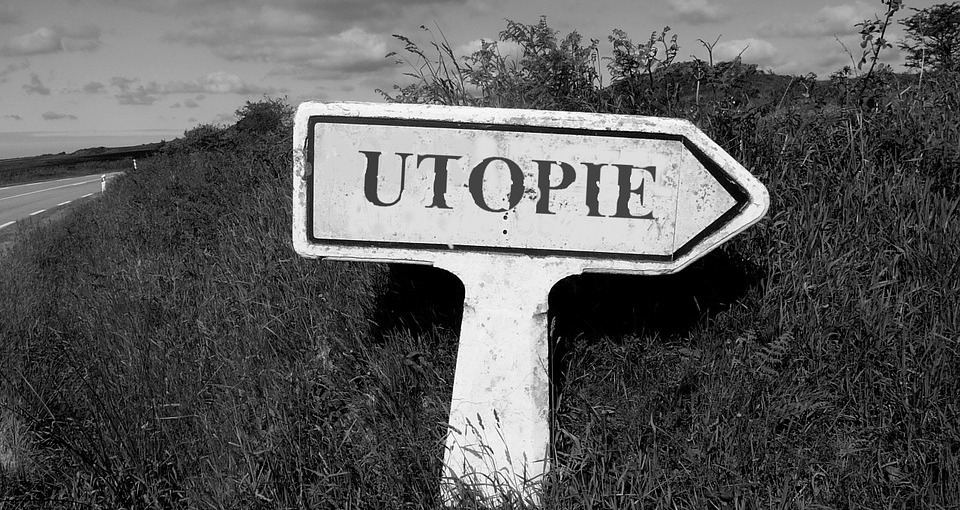Most writers on utopia tend to take a ‘two cheers’ approach to the subject. Utopias are all well in theory, it is said, but attempts to put them into practice are bound to end in disaster. The political experiments of the twentieth century tell us all we need to know: utopias should be regarded, not as serious political interventions, but […]
Read more ›Category: Philosophy
Political Correctness Gone Sad: On Trigger Warnings and the Appropriation of Trauma
Good news for US exports this month. Australia, my adoptive country, has also adopted the trigger warning. Taking its lead from US campuses, Melbourne’s Monash University has obliged its academic staff to review their course materials with the aim of identifying content that may be “emotionally confronting” for students, and is set to attach fifteen advisory statements to subjects dealing […]
Read more ›Show Us the Money: The (Radical) Case for UBI
Ah, Finland! Land of saunas and heavy metal bands. Of unpronounceable nouns and the freedom to roam. Of Santa Clause and archipelagos. Of clean air, clean skin, and clean criminal records … And, now, of the world’s latest experiment in Universal Basic Income, which a whole array of public figures, from Elon Musk to Yanis Varoufakis, agrees is A Bloody […]
Read more ›Crying Freedom: On Chris Berg, Andrew Bolt and Paul Ritchie
In October 1976 an aged Austrian economist assumed the podium in a Melbourne hotel and delivered, extempore, a speech that set libertarian hearts racing. The economist was Friedrich Hayek and the occasion was the Annual General Meeting of the Institute of Public Affairs (IPA), which was then in the process of transforming itself into a radical free-market think-tank of the […]
Read more ›Future Perfect: Beyond the Delusional Present
This essay was first published in Griffith Review: Imagining the Future. You can purchase a copy here. In ‘The Soul of Man under Socialism’ (1891), Oscar Wilde wrote that ‘A map of the world that does not include Utopia is not worth even glancing at, for it leaves out the one country at which Humanity is always landing.’ Certainly it […]
Read more ›Workers of the world, unite! You have nothing to lose but your jobs
‘If you want a vision of the future,’ O’Brien tells a broken Winston Smith in Nineteen Eighty-Four, ‘imagine a boot stamping on a human face – forever.’ Alternatively, you might consider this scenario, from the comedy sketch show That Mitchell and Webb Sound on BBC Radio 4 … The time is about thirty years in the future; the place, the […]
Read more ›A mood on the march?
Eight years on from the global debt crisis, the most remarkable thing about US politics is that it remains the same asinine, catchpenny charade that it was in the decades leading up to it. Notwithstanding the devotees of the Tea Party, who after grabbing the wrong end of the stick with both hands proceeded to beat themselves into irrelevance, and […]
Read more ›In defence of the New Atheism
‘Another day, another tweet from Richard Dawkins’ wrote Eleanor Robertson last July, in response to the controversial professor’s latest foray into the twittersphere. Ah yes, I can remember thinking, and another article on Richard Dawkins and how he and his fellow New Atheists are disappointing progressive expectations! Not that he didn’t deserve it, mind, having just used a moral taxonomy […]
Read more ›Mining the work of a national resource
It is a principle of Raimond Gaita’s thought that one cannot separate moral truths from the manner of their articulation, and that the manner of their articulation will depend on who is doing the articulating. In other words, what we say about morality is deeply connected to the way we say it, which is connected, in turn, to who we […]
Read more ›Free speech: the path to true equality
This May, at the Sydney Writers’ Festival, I was lucky enough to be asked to take part in one of the ‘Coffee and Papers’ sessions. Designed for the festival early birds, the purpose of these gatherings was to bring together local journalists with one of the SWF’s invited authors, whose work, it was hoped, would throw fresh light on some […]
Read more ›










Recent Comments